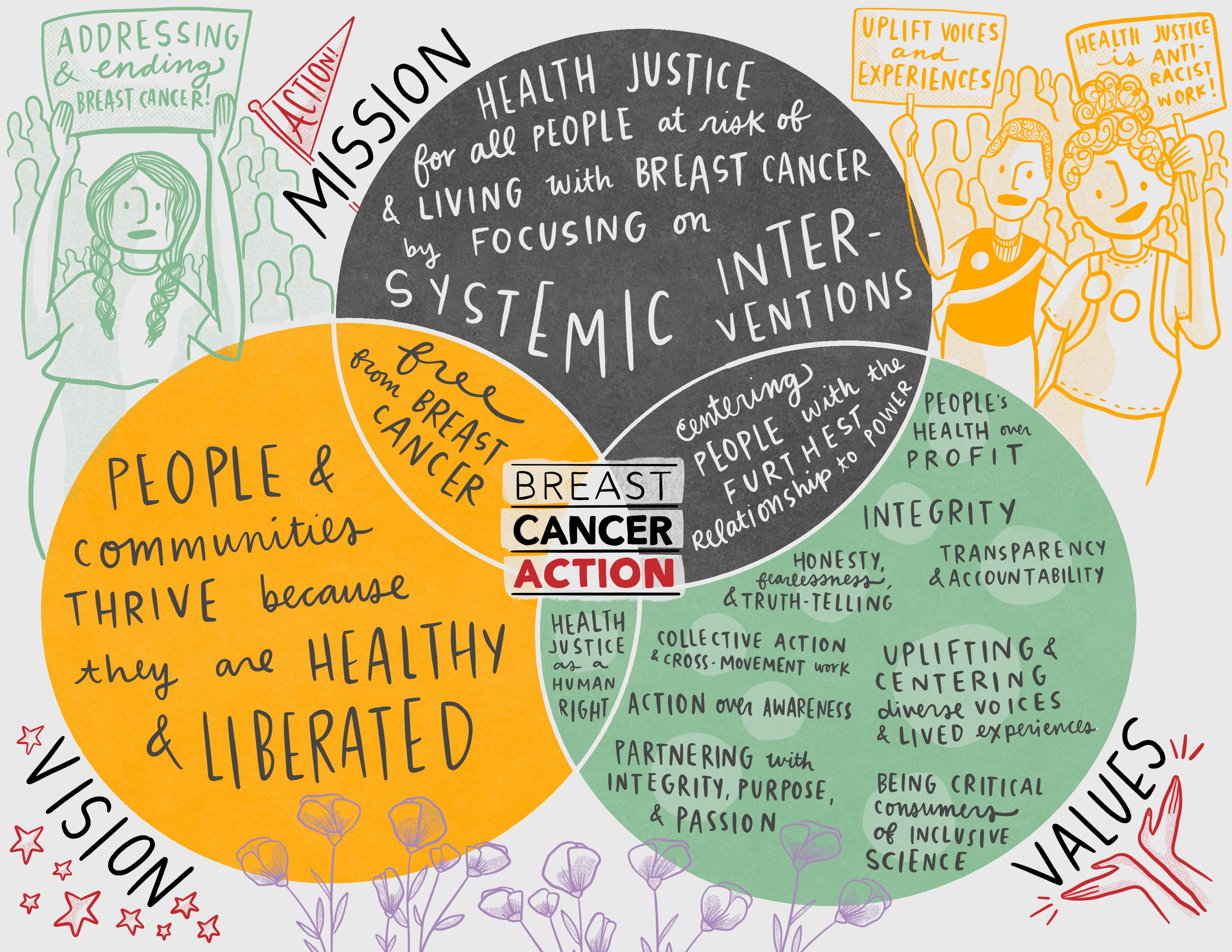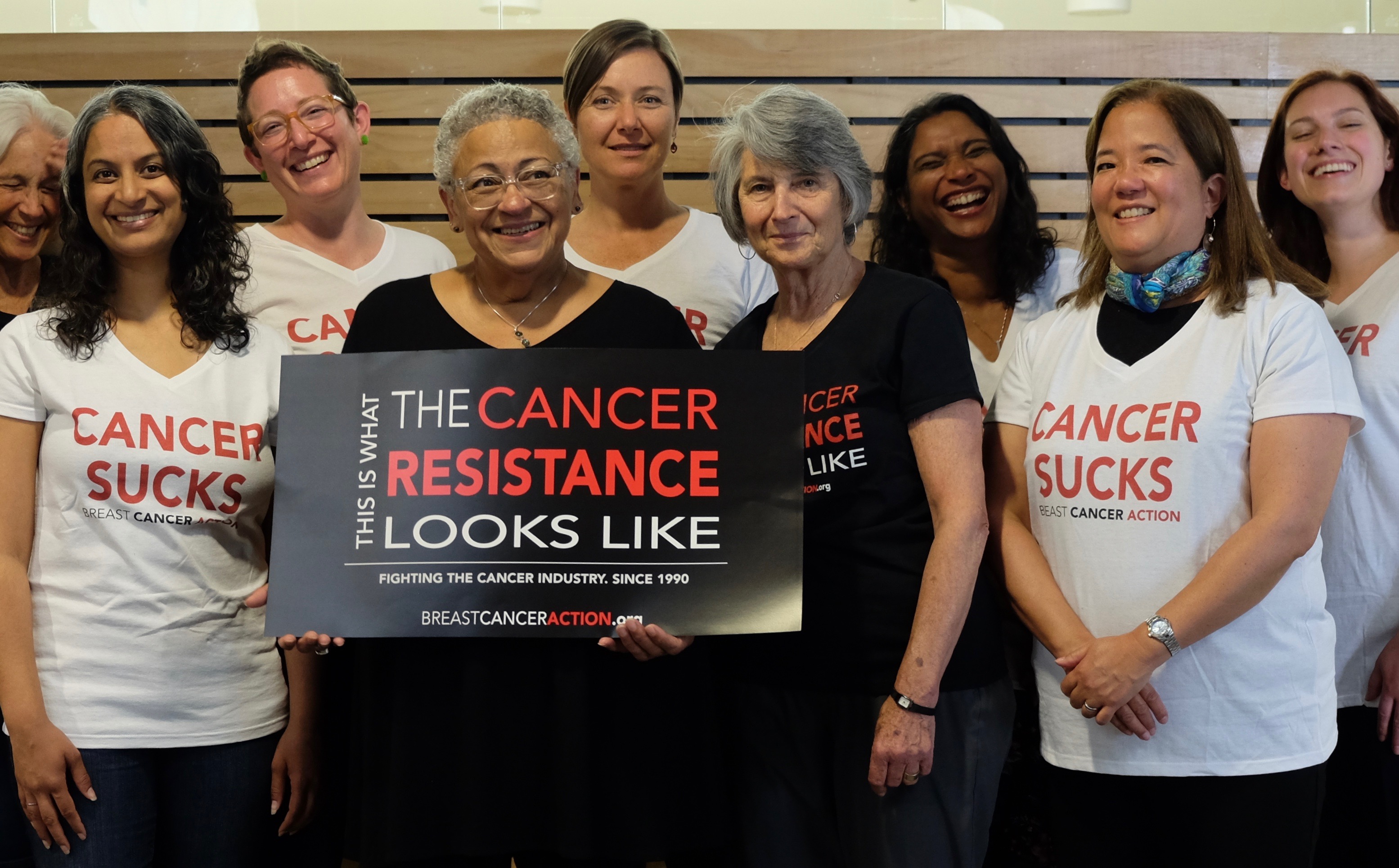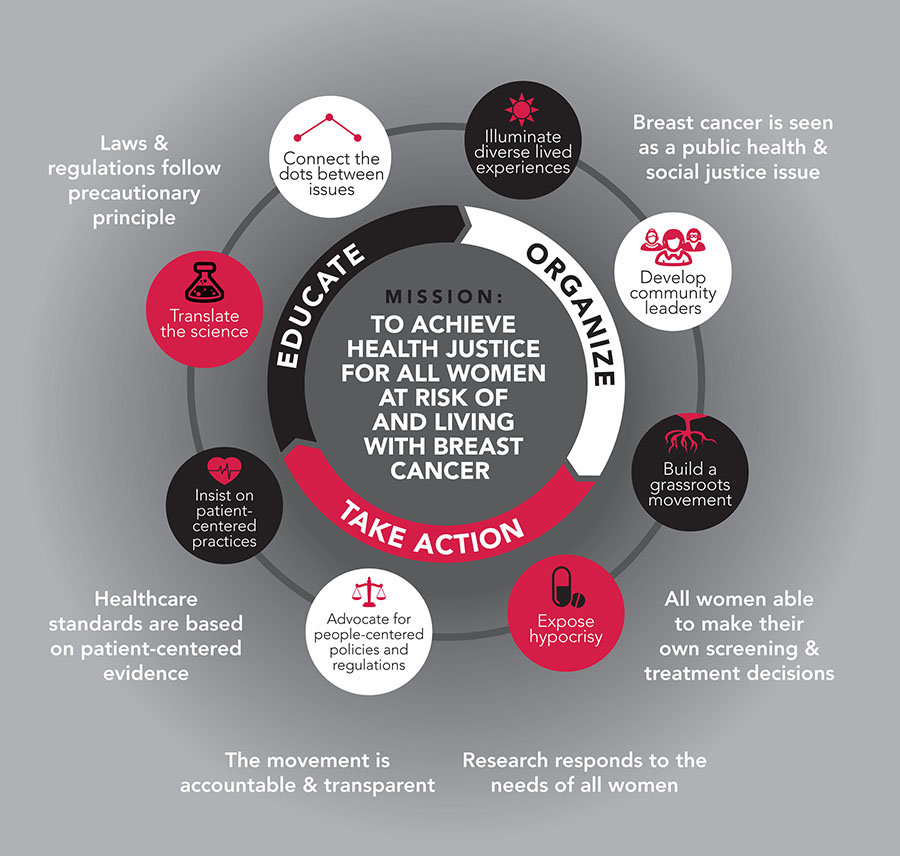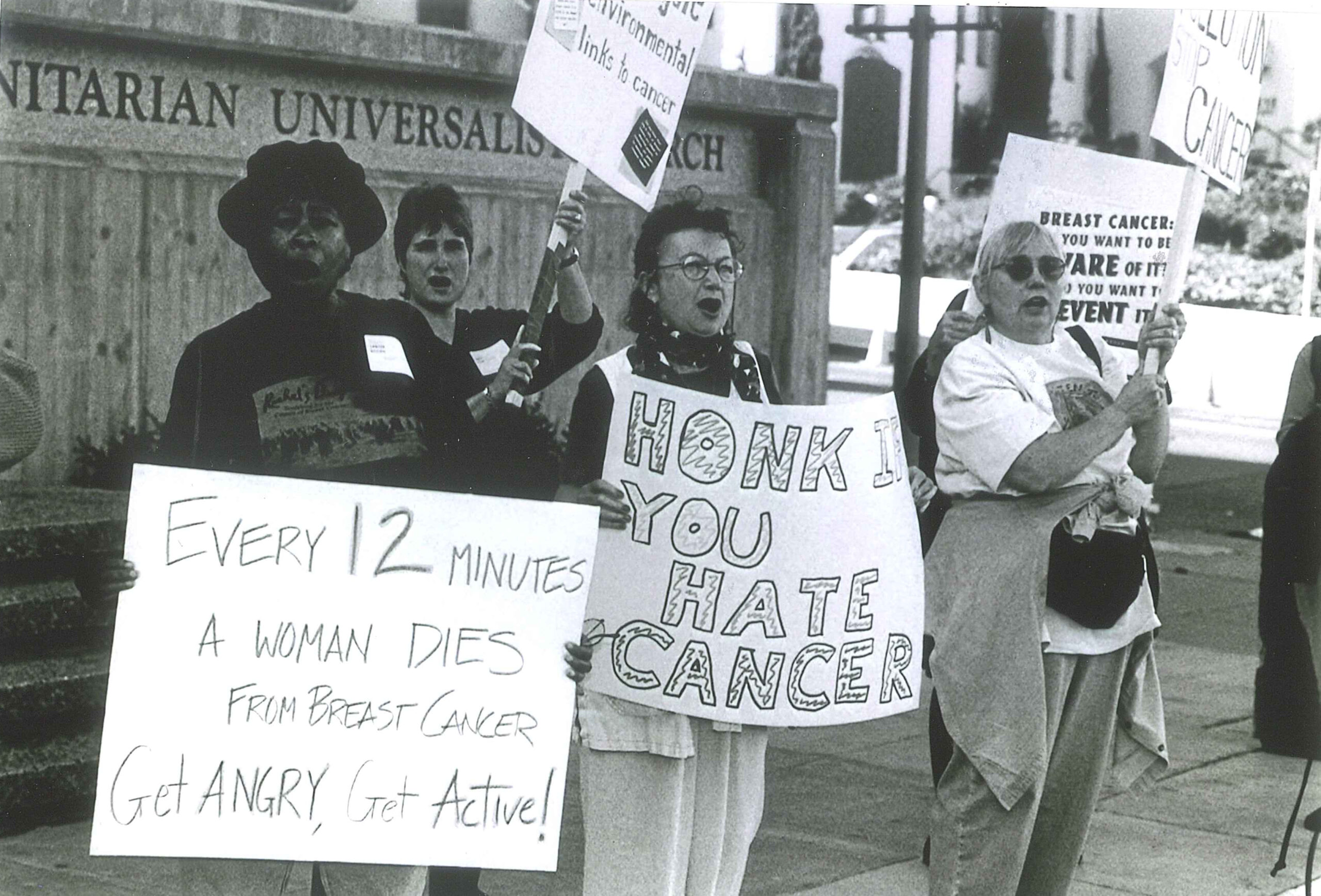More than 30 years after the launch of the breast cancer awareness movement and the introduction of the pink ribbon, breast cancer remains a public health crisis and a social justice issue. However, the mainstream breast cancer movement remains squarely focused on pink ribbons, “awareness” campaigns, and mammography screening. This focus fails to address the systemic issues at the heart of this epidemic, instead emphasizing individual risk and individual solutions. But individual action alone, whether in terms of lifestyle or behavioral choices, is not sufficient to tackle the root causes of the breast cancer crisis.
Among the endless sea of lucrative breast cancer charities, corporate donors, and pharmaceutical-funded research agendas, the independent voice that defines Breast Cancer Action has never been more urgently needed, and our relevance as an activist watchdog organization is greater than ever. At BCAction, we focus on systemic interventions that will address the root causes of the disease and produce broad public health benefits. These benefits will ensure that fewer people develop breast cancer and die from breast cancer, and no community bears a disproportionate burden of diagnosis or death from this disease.

Breast Cancer Action recognizes that the breast cancer epidemic is a social justice issue. Breast cancer is a widespread health crisis that predominantly effects women in a male-dominated and profit-driven society, and addressing and ending the breast cancer epidemic requires profound changes at every level of our society.
In mainstream U.S. culture, breasts are linked to femininity, sexuality, and attractiveness. As a result, breast cancer is a highly sexualized and gendered disease. As a health justice organization with roots in the women’s health movement, we challenge the narrow definitions of femininity, womanhood, and sexuality that mainstream narratives about breast cancer impose on people at risk of and living with the disease. We recognize and honor the many ways people express their gender identity, including outside of the either/or of man/woman. We work to challenge mainstream assumptions about gender and sexuality as it relates to breast cancer risk, diagnosis, and treatment in order to make room for people of all gender identities in the breast cancer movement.
In our work for health justice, we strive to practice principled allyship by using the power and privilege we hold as an organization to build solidarity with communities who currently and/or traditionally have had less access to power, information, and resources.
The current breast cancer epidemic impacts communities unequally and leads to unacceptable differences in who develops breast cancer and when it develops, who gets high quality and timely treatment, and who dies from breast cancer. In order to address and end the breast cancer epidemic, we must tackle the root causes of these health inequalities, which are the result of a complex interplay of culture, power, economics, racism, and sexism.
Achieving health justice requires that each of us be free from oppressions that prevent all of us from living healthy lives in healthy communities. We believe that no single injustice can be effectively addressed in isolation, and we recognize that injustices in our society reinforce each other in many ways and at many levels.
We will work tirelessly and fearlessly to address and end the current breast cancer epidemic:


